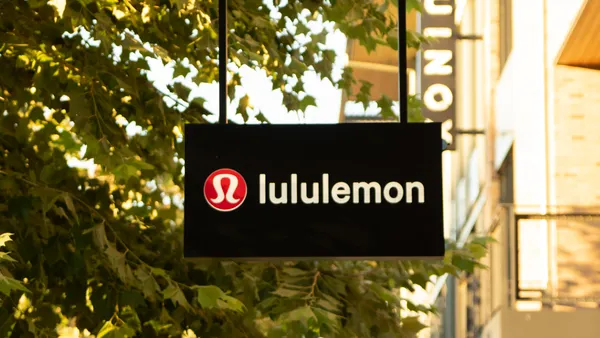Dive Brief:
-
Amazon's private label initiatives are experiencing runaway growth across a range of key product categories, even emerging as the online leader in some categories, according to new consumer spending research conducted by 1010data Market Insights.
-
For example, online battery sales amounted to some $113 million this past year, and 94% percent of those sales were via Amazon sites, 1010data reports, noting that among the top 10 battery brands, the e-commerce giant’s AmazonBasics label accounts for about one-third of battery sales online and enjoyed 93% year-over-year growth.
-
Amazon Elements, a consumer product line including baby wipes available exclusively to the retailer's Prime members, is also “cleaning up market share,” increasing 266% year over year according to 1010data. Based on total dollars sold among the top 10 brands, Amazon now controls 16% of the baby wipes market, just behind Huggies (33%) and Pampers (26%).
Dive Insight:
Amazon is also growing increasingly competitive in the speakers category, including its own voice-enabled Echo devices, generating an estimated $1 billion in sales this past year based on 1010data research. Amazon now accounts for 89% of total online speaker sales, and Amazon Echo as a brand holds a 45% percent market share among the top 10 brands, based on dollars sold: Echo sales have grown 67% year over year, and the unit is now the most popular speaker sold online.
Amazon is additionally enjoying explosive growth in other product categories, according to research from One Click Retail. October apparel sales, which included Halloween costumes, rose 85% over September, and sales of physical books increased beyond $84 million, with children’s books seeing more than $41 million in sales, driven by early holiday shopping. Amazon is also finding surprising traction in other categories, including mattresses (more than $23 million in sales in October) and home improvement (more than $20 million in sales in October).
All these numbers from both study teams show that Amazon is dominating when the product categories include commodities like baby wipes and batteries where price stands out as a differentiator, as well as in categories where differentiation is found in the quality and features of a product, e.g. speakers.
“No matter the market, the challenge for brands in an increasing number of categories is that Amazon is the top online channel. And Amazon is leveraging its dominance to sell its own private-label brands which compete with traditional suppliers,” 1010data senior vice president of marketing Jed Alpert said in a statement emailed to Retail Dive. “Reasons for Amazon’s success across different markets vary. In batteries, they have a price-competitive product in a largely commoditized market with little brand loyalty. In speakers, they’ve developed truly innovative products that are redefining the market. The bottom line for brands is they can no longer view Amazon as solely a channel and need to acknowledge Amazon as a competitor.”
Amazon last month reported third quarter net sales of $32.7 billion, up 29% from $25.4 billion in the year-ago quarter, buoyed by its annual Prime Day shopping event as well as strong back-to-school shopping activity. The retailer posted earnings per share of 52 cents on revenue of $32.71 billion, behind Thomson Reuters consensus analyst estimates of 78 cents a share on revenue of $32.69 billion. Surging shipping costs and other expenses resulted in the unexpected miss: Shipping alone amounted to $3.9 billion in Q3, up 43%.














